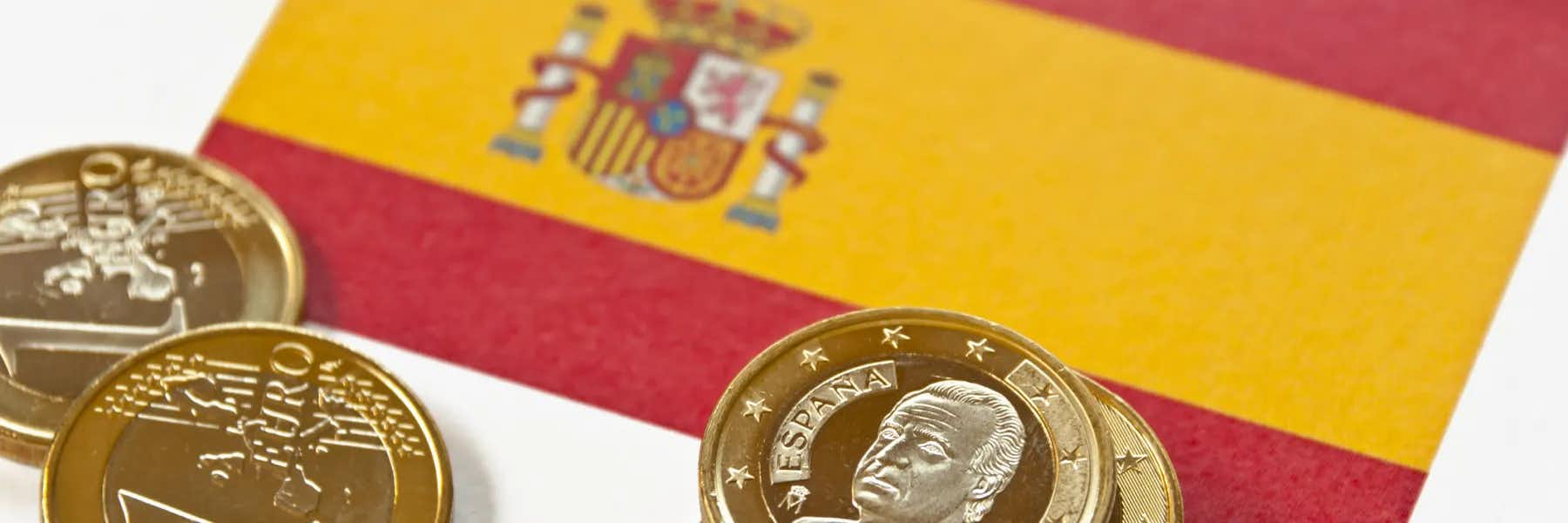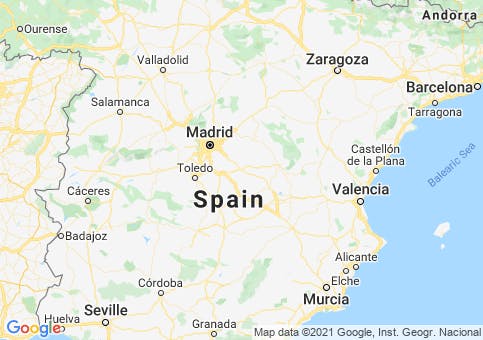Depending on your situation in Spain, you’ll be liable for various types of tax. You’ll pay sales tax on day-to-day items and durable goods that you buy. If you own a property, you’ll owe annual property tax (and some income tax, even if you are a non-resident). And if you live full-time in Spain (or at least 183 days a year as a resident), you should file an income tax return in Spain and may possibly owe income tax.
Sales or Valued-Added Tax (VAT) is called IVA (Impuestos sobre Valor Añadido) in Spain. The current standard rate is 21%. However, some goods are actually taxed at a lower rate. A reduced IVA rate of 10% is charged for transport of passengers (such as rail and bus fares), taxes on the renovation of a property, and for admission to cultural, sporting, and entertainment events. An even lower rate of 4% is charged for newspapers and basic foodstuffs.
Annual Property Tax: Property taxes, officially known as Impuestos sobre Bienes Inmuebles and unofficially as predial, in Spain are generally midrange. They’re set by the local provincial government, and the rates vary— depending on the province—from about 0.00405% to 0.01166% of the cadastral value of the property. (That is, from under half of 1% up to just over 1% of a property’s cadastral value.)
Cadastral value (valor catastral) is the official property value listed in the municipal property records—and it’s often much lower than a property’s actual market value.
Under the rates given above, a house with a valor catastral of €100,000 ($123,000) would mean annual property taxes between €405 and €1,166 ($498 and $1,434) a year, depending on what province the property is in.
Get Your Free Spain Report Today!
Get Your Free Spain Report Today!
Learn more about the lower cost of living in Spain and other countries in our free daily postcard e-letter. Simply enter your email address below and we'll also send you a FREE REPORT — Live the Good Life in Sunny, Affordable Spain.

By submitting your email address, you will receive a free subscription to IL Postcards and special offers from International Living and our affiliates. You can unsubscribe at any time, and we encourage you to read more about our Privacy Policy.
Income Taxes as a Resident of Spain
Spain’s tax rates are in the mid-range for European countries.
Personal income taxes in Spain are known as Impuestos sobre la Renta de Personas Físicas, or IRPF. If you reside in Spain for 183 or more days in a given year, you are considered a tax resident of the country and must declare your worldwide income. Many countries, including the U.S. and Canada, do have tax treaties with Spain to prevent your being taxed twice—that is, in both Spain and in your home country. (Under the tax treaties, you get credit in each jurisdiction for taxes paid in the other.)
Each autonomous community sets its own tax bands, and tax is divided between federal and provincial/local entities. Spain has a sliding system of graduated income tax rates, with rate bands.
Spanish tax returns must be filed between Jan. 1 and June 30 for taxes from the previous calendar year.
Income Tax as a Non Resident
Even if you don’t live in Spain full-time, owning a second home there brings certain tax obligations.
As a property owner, you must pay two taxes in Spain related to your property:
IBI, or Impuestos sobre Bienes Inmuebles. This is a council tax that must be paid by every homeowner. You pay it directly to the town hall. It is collected annually, although the time of year may vary by region. The amount is based on the cadastral value of your property.
An imputed income tax/rental tax. Spain’s tax authorities assume that you could rent out your second home there and earn income on it if you wanted to. If you do rent it out, you’ll naturally owe tax on that rental income (we’ll get to that in a moment). If you don’t rent it out, you’ll still owe an imputed income tax every year that’s based on your home’s cadastral value.
So here are the taxes you’ll owe, depending on how you use your property:
If you don’t rent out your home, you’ll owe an imputed property tax every year as follows:
24% of either 2% or 1.1% of your property’s cadastral value (which, as we’ve mentioned, may be much less than its actual market value):
If your property’s cadastral value has been updated since 1994, the tax is based on 1.1% of the cadastral value.
If your property’s cadastral value predates 1994, the tax is based on 2% of the cadastral value.
If you do rent out your second home in Spain, you’ll owe a flat tax of 24.75% on your gross rental receipts, generally with no deductions. The tax is due when income is received—either monthly or, if receipts are grouped, quarterly.
If you plan to buy a property that you want to rent out either full- or part-time to earn some income—for instance, a vacation condo—it’s a good idea to have it managed by a rental-management company. The company can handle the property’s maintenance as well as make tax payments on your behalf, for a fee.
Capital Gains Tax: Capital gains and investment income have progressive tax rates of 19%, 21%, and 23%. Capital gains on a primary residence in Spain are tax-exempt under certain conditions.
Getting a Spanish Tax ID Number
You’ll need a national Spanish tax ID number (Número de Identidad Fiscal, or NIF) to file a tax return. For Spaniards themselves, their NIF is the same as the number that appears on their national ID card, or Documento Nacional de Identidad (DNI).
Full-time expats are assigned a national ID number—the equivalent of a DNI—when they get their long-term resident visa. This number is called a Número de Identidad de Extranjero, or NIE, and it will also be used as their NIF on tax returns.
If you are a non-resident of Spain and buy a property, you’ll need to get an NIE in order to file your return. You can request one at the main police station in the town where you own your property.
Your Obligation to Your Home Country
Regardless of your tax liability in Spain, you’ll most likely have some sort of tax obligation to your home country. U.S. citizens, for example, must file a U.S. tax return every year declaring their worldwide income, no matter where they live or work. (Though, as noted earlier, they get credit in the U.S. for taxes they’ve paid elsewhere.) Canadians, on the other hand, can change their tax residence.
Get Your Free Spain Report Today!
Get Your Free Spain Report Today!
Learn more about the lower cost of living in Spain and other countries in our free daily postcard e-letter. Simply enter your email address below and we'll also send you a FREE REPORT — Live the Good Life in Sunny, Affordable Spain.

By submitting your email address, you will receive a free subscription to IL Postcards and special offers from International Living and our affiliates. You can unsubscribe at any time, and we encourage you to read more about our Privacy Policy.














